By Lillie Coussee
The National Day of Action rallies held across the country on Wednesday called for free and accessible education, more grants and education justice, said Mitra Yakubi, the chairperson for the Canadian Federation of Students-Ontario (CFSO).
CFSO organized a National Day of Action on Nov. 8 to demand accessible education for all post-secondary students in Ontario.
The demonstration in Toronto began at Grange Park before making its way to Queen’s Park, with students from universities across the Greater Toronto Area in attendance.
Six other rallies were underway across the province and 13 demonstrations took place nationwide.
According to its website, CFSO is the oldest and largest bilingual national students’ union and comprises over 60 university student unions across Canada. This union organizes and lobbies for various student-related issues including free and accessible education.
“The first one is free and accessible education. Second one is grants, not loans…and the last one is education justice,” Yakubi said.
She said more and more students are having to take loans because they’re not offered grants, which take a long time to pay back.
Yakubi said international students are especially treated like “cash cows” and it’s important to consider all student experiences.
“Our hope is to let our government officials know that students have been left behind for far too long. We demand free and accessible education and we demand that students be prioritized,” she said.
“We demand free and accessible education and we demand that students be prioritized”
International undergraduate students paid over 200 per cent more than domestic students for their tuition in the 2022-23 academic school year. Ontario has the highest tuition fees for international students, according to Statistics Canada.
The report also highlights that graduate students in Ontario have an average of 26.2 per cent higher tuition costs than the Canadian average.
Sina Rahimi, an international student from Iran in the second-year of his PhD at Toronto Metropolitan University (TMU), said international students are here to study and learn but they are being forced to negotiate with the university about the costs of tuition.
He said many international students have to work multiple jobs not only to pay for tuition but also to afford the cost of living in Toronto.
Rahimi said there are not many scholarship opportunities for international students and the ones that are offered don’t cover the full cost of tuition, let alone other life expenses.
The Eyeopener reached out to the school for comment but didn’t receive a response in time for publication.
Rahimi added that international students have been in contact with TMU about the support needed, but the problem persists.
“If [TMU] can provide international students with different sources of funding, different scholarships, loans or maybe emergency bursaries, that would be another solution to the problem,” Rahimi said.
Jacqui Gingras, a sociology professor at TMU, said the best way to support international students is to halt the school’s partnership with Navitas—a for-profit organization based out of Australia that helps increase opportunities and international enrolment for students, according to its website.
As previously reported by The Eye, TMU signed a 10-year partnership agreement with Navitas in September 2020, launching the Toronto Metropolitan University International College—a program aiming to help international students transition to Canadian university life.
“There are so many questions about the role of Navitas and how money is being used,” Gingras said. “International students are being exploited in the name of a for-profit corporation.”
Not all universities in Canada use Navitas. Western University halted its partnership with the corporation in January 2021 for multiple reasons, including a lack of transparency provided by the private program and because they felt international students were being “used as sources of revenue,” as previously reported by The Eye.
The Eye reached out to TMU for comment but did not receive a response in time for publication.
International students feel most of the burden when it comes to tuition costs, but all students are struggling, Gingras said. She added that free education for all is “absolutely possible…it’s about priorities.”
In an email to The Eye, TMU president Mohamed Lachemi said the university agreed with the important issues raised by the National Day of Action. However, he said many universities are facing difficult fiscal realities as provincial funding has been on a decline for the past couple of years resulting in many challenges, including “frozen domestic tuition fees, fixed enrollment corridors and limited government funding.”
“While there are no current plans to increase tuition, covering the cost of inflation or investing in various enhancements is certainly a challenge when revenues are frozen for several years in a row,” Lachemi said.
Annie Yang, a part-time student at TMU and a student executive for Toronto Metropolitan Association of Part-time Students, was at Queen’s Park on Wednesday. She said having to pay for education is a huge burden on many students’ livelihoods and working two to three jobs is not ideal.
“It’s a very intentional political choice the government made to make post-secondary [education] not affordable and biased towards privileged populations,” she said.
Yang studies mental health and addiction at The Chang School of Continuing Education and is pacing herself with her courses, not because she wants to but because she cannot afford to be a full-time student right now.
“If we did have free and accessible education [then] I could take more courses,” she said. “Whether you’re part-time, full-time or international, everyone is affected to some degree by the high costs of tuition.”
Yakubi and CFSO are prepared to advocate for all students for free and accessible education until things change, she said.
“We are [not] going to…stop until they listen to us.”

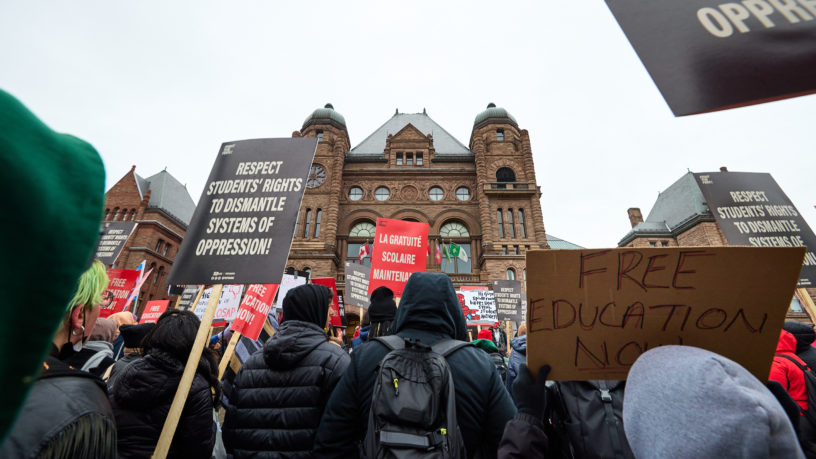
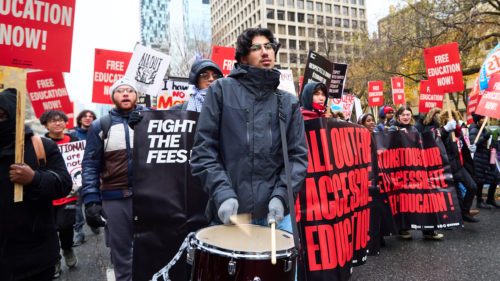
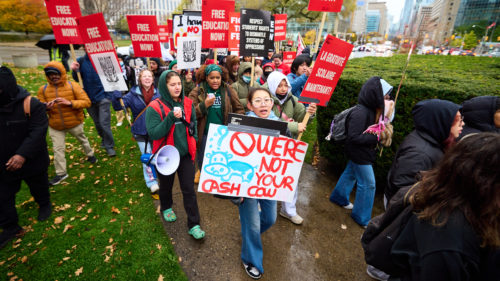

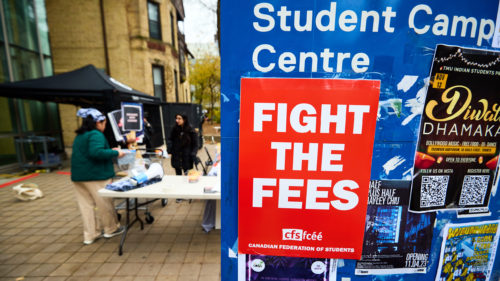
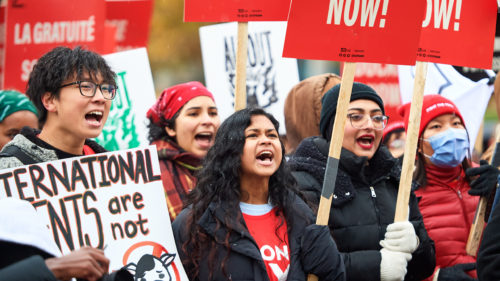
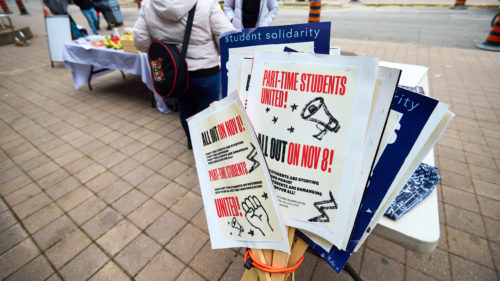








Leave a Reply